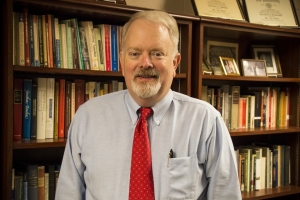Wilbur Fellows Programs
“Nurturing the Moral Imagination among Those Who Write and Read”
A Residential Fellowship Program Unlike Any Other
The Wilbur Fellows Program has been in continuous operation for nearly forty years. It counts among its numbers hundreds of alumni currently teaching at secondary and university levels, as well as publishers and editors, officers in the services, business and legal professionals, and religious leaders.
The Kirk Center’s Residential Fellows Program affords students and scholars the ideal conditions in which they can conduct important research and writing. Fellows write books, essays, reviews, and theses while staying at Piety Hill for periods ranging from a few months to one year. Frequent in-house seminars formalize an already close and stimulating intellectual environment.
Since 1979, the Wilbur Fellowship Program has been central to the Mecosta experience for hundreds of students and professors. The program is named for Marguerite Eyer Wilbur, who was born in 1889, graduated from Stanford and the University of Southern California, and subsequently enjoyed an active career advancing the fine arts and the craft of writing. She edited five books and translated nine others, including two by Dumas and several about the exploits of Spanish buccaneers and missionaries in early California. She also authored several books, among them a study of the East India Company and biographies of Francis Drake, Philip II, and Thomas Jefferson.
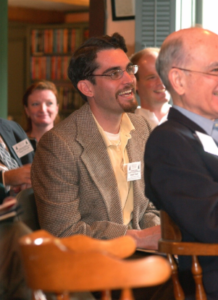
The program they developed to extend that mission is the Wilbur Fellowship Program, an academic community that was centered about the household of Russell and Annette Kirk. To this day, students and scholars come to Piety Hill to reside, study, and write at what is now the Russell Kirk Center for Cultural Renewal, founded after Kirk’s death to institutionalize this unique literary community.
Each year undergraduate and graduate students apply for a residential research and study grant. The awardees come to live and work at the Kirk Center which is comprised of six buildings and is centered on Kirk’s Dutch-barn library and his ancestral house.
The Fellowship Program is currently divided into three parts: Junior Fellows and Graduate Fellows reside in Mecosta while working on educational advancement—an independent study, a thesis, dissertation, or book. They are chosen by completing the application process.
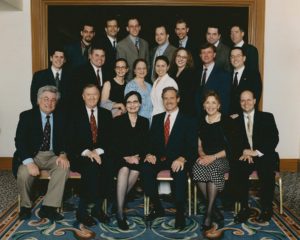
The Wilbur Fellows Program has been in continuous operation for nearly forty years. It counts among its numbers hundreds of alumni currently teaching at secondary and university levels, as well as publishers and editors, officers in the services, business and legal professionals, and religious leaders.
The Kirk Center has also welcomed as Wilbur Fellows scholars and students from Austria, Britain, France, Holland, Hungary, Germany, Italy, Romania, Yugoslavia, Poland, Russia, and the Czech Republic—giving the Center an important international dimension.
Fellows’ Voices
Recent News and Work from the Wilbur Fellows
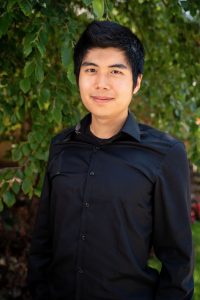
Lee Cheek (Wilbur Fellow 1984-1985), Dean of Humanities and Social Sciences, Returns to Full-Time Teaching
Dr. H. Lee Cheek enjoyed a lively experience working with Russell Kirk as a Wilbur Fellow during the 1984-1985 academic year. He recalls many evenings spent studying and helping Dr. Kirk on his literary labors. Kirk once charged the young Lee Cheek to first and foremost, “know your own tradition.” That charge sent Dr. Cheek on a lifetime path of reading and thinking deeply about his own tradition as a Southern Protestant within the larger context of American and Western Civilization. It was then he discovered many of the writers that have meant the most to him. Dr. Cheek began teaching at the college level soon thereafter in 1986.
For the past nearly two decades, Dr. Cheek has been at the helm of administrative duties as Dean of the School of Humanities and Social Sciences as well as Professor of Political Science and History at East Georgia State College. Next year, he is looking forward to a transition back to full-time teaching. As Dr. Cheek phrases it, “this is a proverbial return of the rabbit to the proverbial briar patch. My original and most central mission is to teach and mentor students.” He will continue to serve as the Director of the Correll Scholars Program, the honor college which accepts 20 students each year.
Dr. Cheek’s most recent book, The Founding of the American Republic, will be published by Manchester University Press in 2019. From the Center’s beginnings to the present, Dr. Cheek has been one of its most loyal friends and supporters.
“I have devoted my life to liberal education because I believe it helps order the soul.
In a democratic society, the perpetuation of the social and political order
depends on an educated populace. If a society is to prevail, it must preserve and transmit the spiritual and cultural patrimony that gives it coherence and wholeness.”
– Dr. Lee Cheek
Former Fellows: Reconnect through our Facebook Group
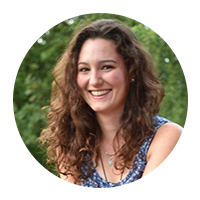 “Kirk’s writings made me rethink the power of imagination and the American Republic. I am now teaching his
“Kirk’s writings made me rethink the power of imagination and the American Republic. I am now teaching his 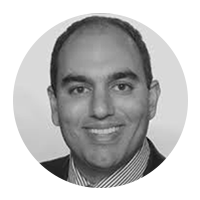 “To stay at Piety Hill is to visit another world, a world full of learning and hope…. The spirit of history comes alive at Dr. Kirk’s ancestral home, where the feeling of community breeds new ideas and confirms the eternal verities.
“To stay at Piety Hill is to visit another world, a world full of learning and hope…. The spirit of history comes alive at Dr. Kirk’s ancestral home, where the feeling of community breeds new ideas and confirms the eternal verities. 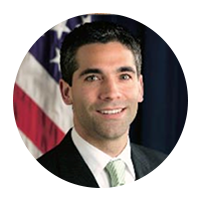 “My time as a Fellow at The Russell Kirk Center for Cultural Renewal was a pivotal moment in my professional development. During the time I spent at the Center, I benefited in three consequential ways.
“My time as a Fellow at The Russell Kirk Center for Cultural Renewal was a pivotal moment in my professional development. During the time I spent at the Center, I benefited in three consequential ways. 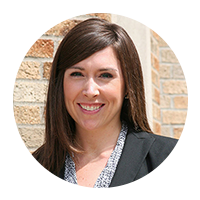 “The Kirk Center provides the encouragement, support, guidance, strength, vision, and hope required to continue the work of the conservative movement. In the midst of the current political and moral climate of the US, there is no greater means of ‘rallying the really human things’ than being granted the opportunity to spend time browsing the books of Dr. Kirk’s library, listening to discussions by noted scholars, and continually conversing on the restoration of fundamental principles.”
“The Kirk Center provides the encouragement, support, guidance, strength, vision, and hope required to continue the work of the conservative movement. In the midst of the current political and moral climate of the US, there is no greater means of ‘rallying the really human things’ than being granted the opportunity to spend time browsing the books of Dr. Kirk’s library, listening to discussions by noted scholars, and continually conversing on the restoration of fundamental principles.”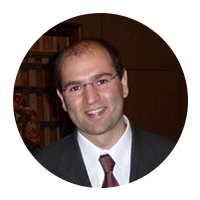 “Prior to my arrival, I didn’t know what to expect from a ‘platonic academy,’ as former resident, Professor Rett Ludwikowski described it, remote from most of the main scholarly centers in the United States. My first steps in Mecosta were somehow hesitant. This however changed the moment I crossed the doorstep of the most fascinating library I have ever seen. The cozy atmosphere attracts the reader and provokes interesting and enriching discussions with other Fellows who can be met at every hour of the day.
“Prior to my arrival, I didn’t know what to expect from a ‘platonic academy,’ as former resident, Professor Rett Ludwikowski described it, remote from most of the main scholarly centers in the United States. My first steps in Mecosta were somehow hesitant. This however changed the moment I crossed the doorstep of the most fascinating library I have ever seen. The cozy atmosphere attracts the reader and provokes interesting and enriching discussions with other Fellows who can be met at every hour of the day. 